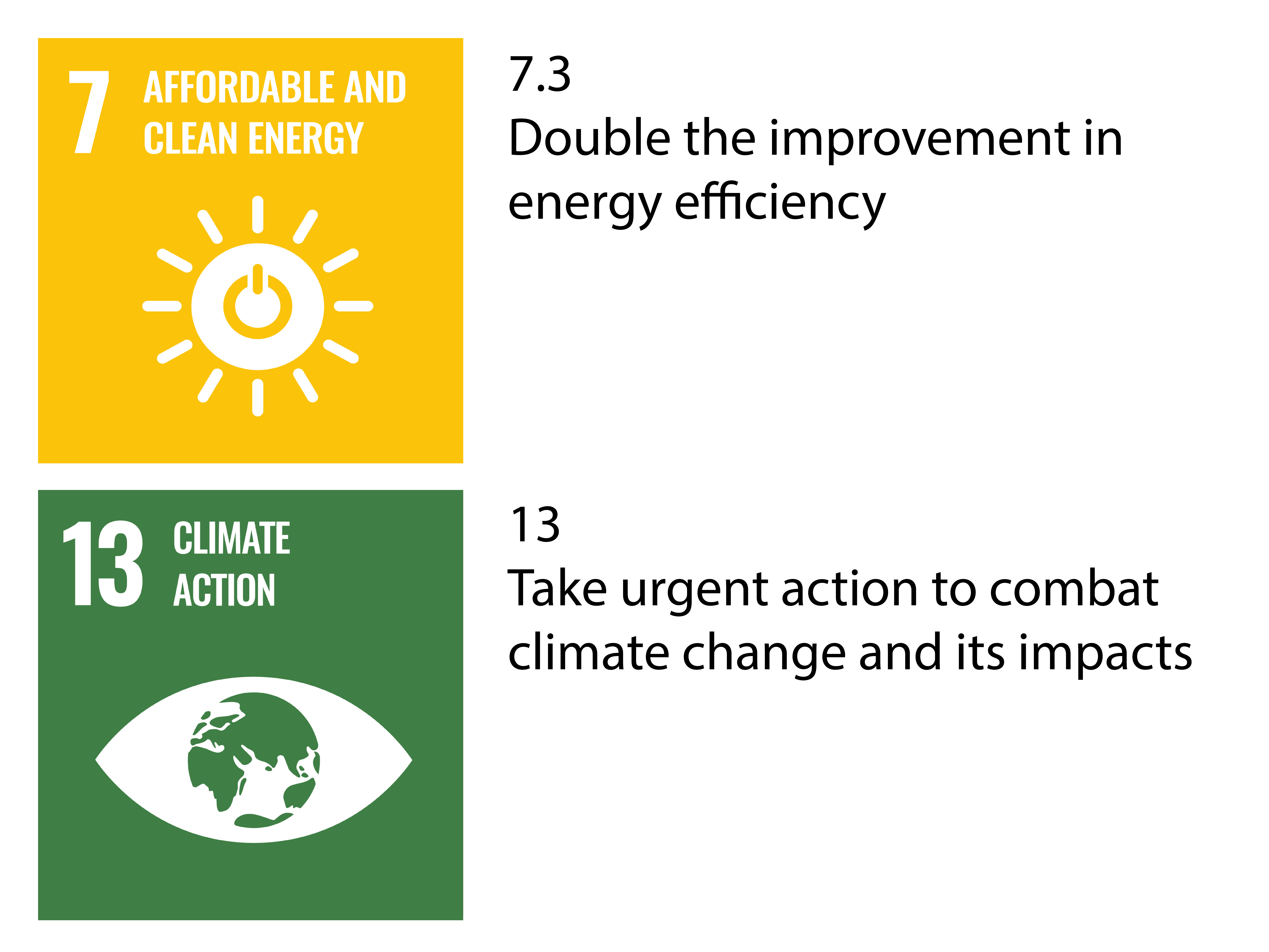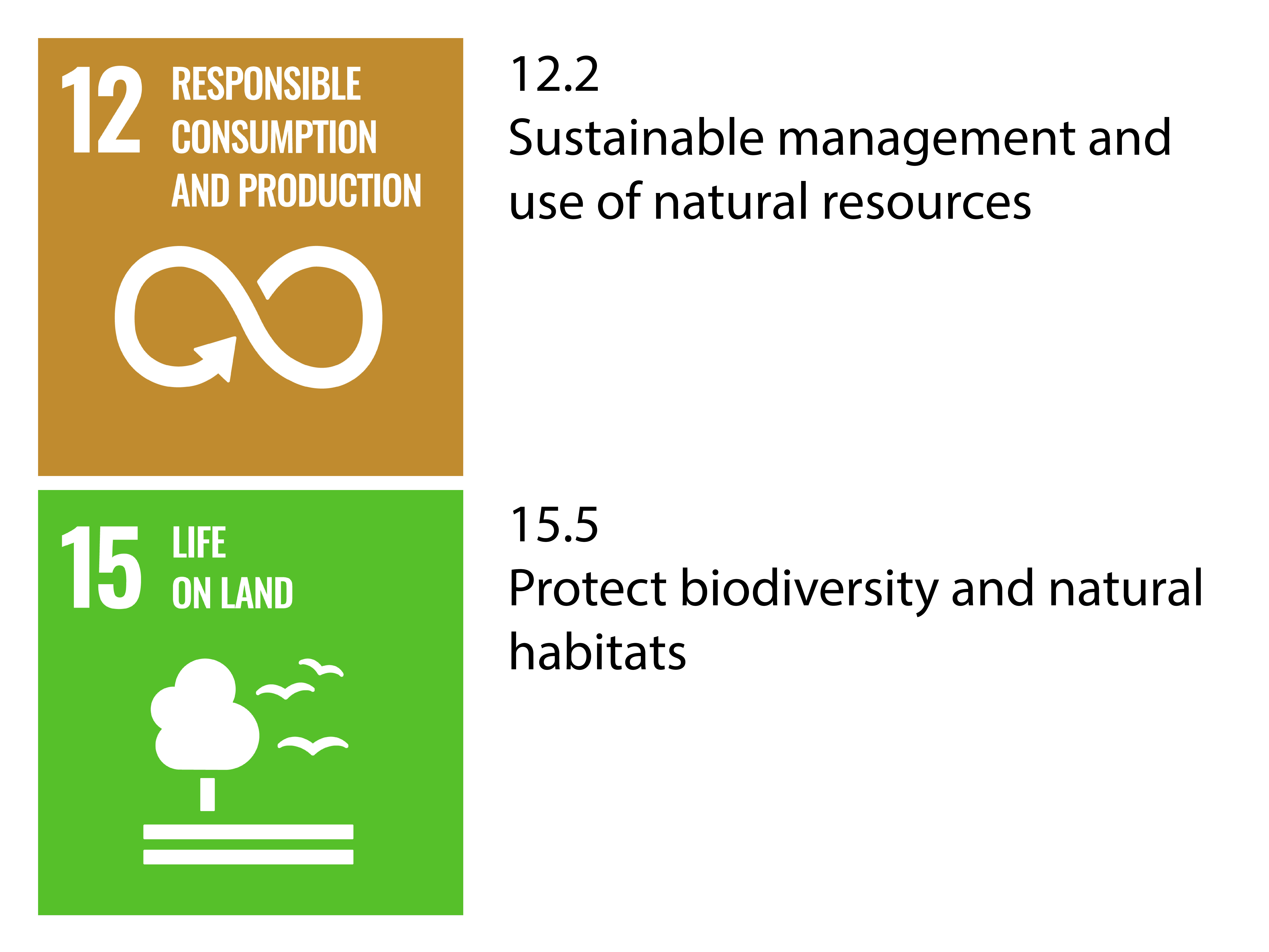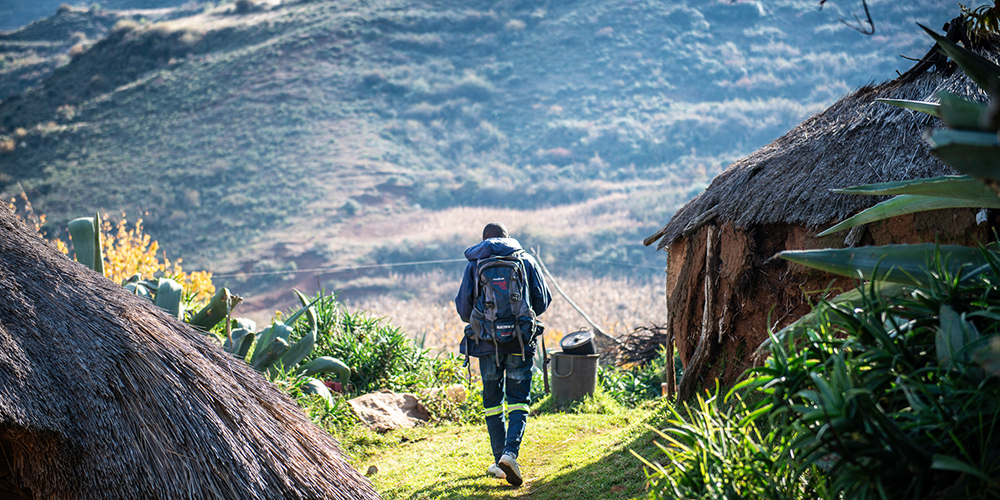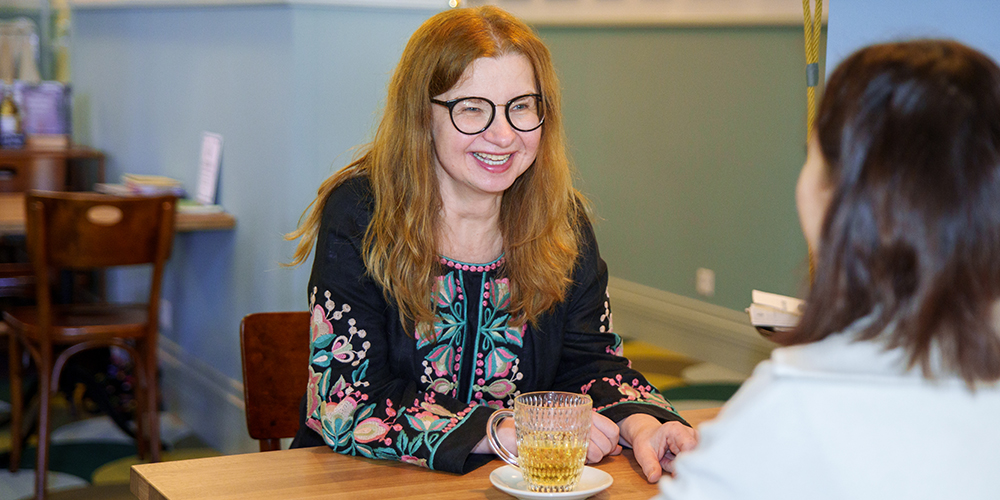Research
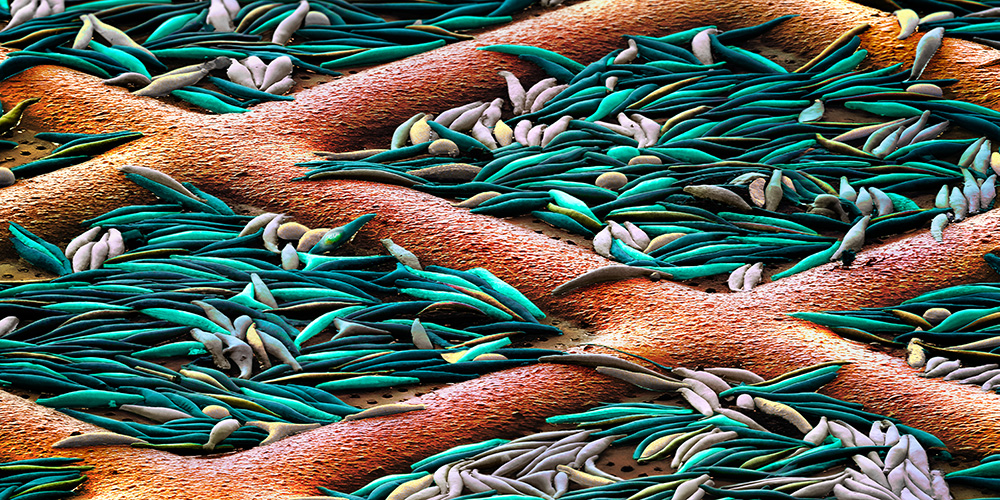
From fundamental research in the natural sciences to transdisciplinary research projects at the interface with society: over the past two years, the University of Basel has once again contributed to the promotion of sustainability and the achievement of the Sustainable Development Goals with numerous contributions from various disciplines. In everyday research, attention is also paid to minimizing the ecological footprint.
How diatoms fix CO₂
The discovery of a protein envelope that plays a key role in the CO₂ fixation of diatoms by researchers led by Professor Ben Engel has attracted considerable international attention. This tiny algae species plays an important role in the global carbon cycle, as it absorbs large quantities of CO₂ from the environment through photosynthesis and converts it into nutrients. Using state-of-the-art imaging technologies such as cryo-electron microscopy, the researchers were able to elucidate the molecular architecture of the so-called PyShell protein coat and decipher its exact function. The results were published in two studies in ‘Cell’ and could be very useful for future biotechnological applications for CO₂ storage.
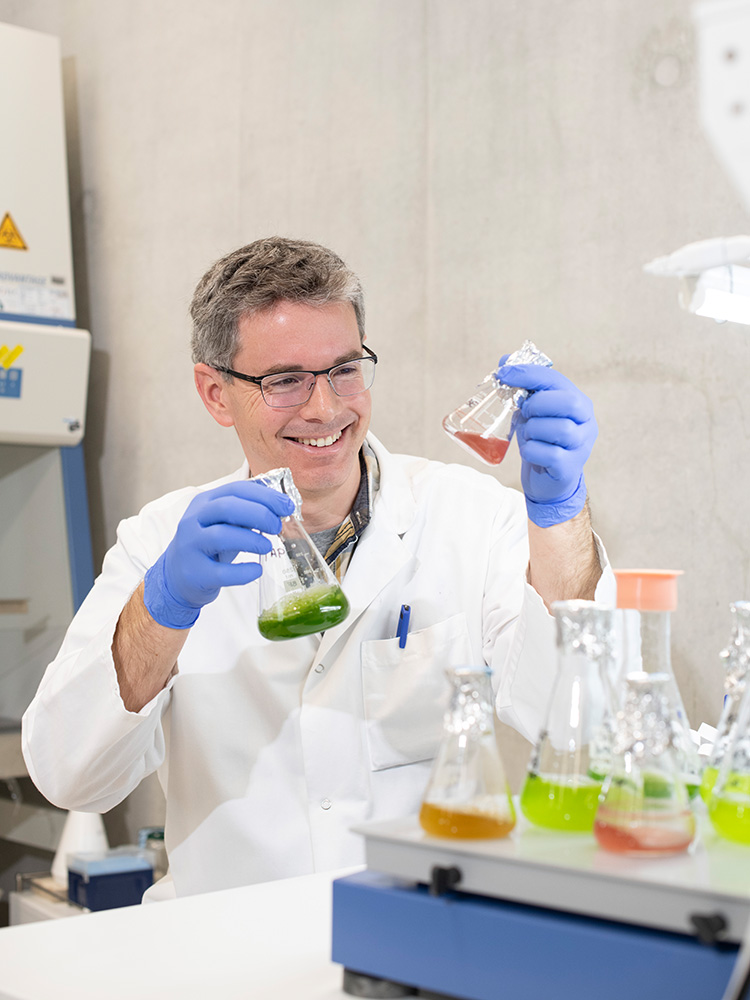
We hope that our discovery can be an important piece of the puzzle in tackling the climate crisis, for example by breeding plants that can bind CO₂ from the atmosphere even more effectively. First and foremost, however, we humans must drastically reduce our CO₂ emissions in order to slow down the pace of climate change.
Professor Ben Engel, Departement Biozentrum
Research cooperation on the energy transition
The interdisciplinary research network “Sustainable Future”, which brings together over 100 researchers from five faculties at the University of Basel, is involved in two major research collaborations as part of the national funding programme SWEET (Swiss Energy research for the Energy Transition). These program are expected to make a significant contribution to the successful implementation of the Swiss Energy Strategy 2050. The SWEET CoSi (Co-Evolution and Coordinated Simulation of the Swiss Energy System and Swiss Society) research consortium led by the University of Basel is investigating the interactions between society and the energy system. The project, which is funded by the federal government with a total of CHF 10 million, combines economic, social science and humanities research areas with engineering-based energy modelling and establishes a direct exchange with relevant stakeholders. The aim of this transdisciplinary collaboration is to test various scenarios and to develop models for future-proof and socially compatible energy systems.
Further selected publications and research projects relevant to sustainability in 2023-24 are presented in the following picture gallery:
Conserving resources
In November 2024, 15 interested research groups from the Biozentrum and the Department of Physics took part in the Electricity Saving Challenge. The aim was to reduce electricity consumption without compromising cutting-edge research. The groups tested and implemented changes to their workflows and tracked their impact in real time via an app. They were also able to compare current consumption with baseline data in order to directly assess the effectiveness of the measures. Thanks to various measures, the electricity consumption of the participating research groups fell by an average of 8.5% during the test month. The ‘Electricity Saving Challenge’ was initiated by the Department of Building Technology & Operations and the Sustainability Office at the University of Basel. Professor Ulf Hahnel's research group at the Faculty of Psychology supported the project.
Green Lab Initiative
Since January 2023, the ‘Sustainable DBM’ group, founded by Managing Director Andrea Ottolini and others, has been working on sustainable laboratories in the Department of Biomedicine. Since then, the ‘Green Lab Team’ has launched a number of initiatives, including the recycling of plastic waste and participation in the global ‘Freezer Challenge’ to save energy in freezers by slightly raising their temperature .
In the meantime, further working groups have been formed at the Biozentrum and the Department of Physics. They are supported by the ‘Green Lab Initiative’ of the Sustainability Office, which brings together interested researchers and laboratory staff in several workshops per year, to develop joint solutions to sustainability issues in laboratory operations.
Further research projects on sustainability topics in 2023 and 2024 are presented in the picture gallery:

